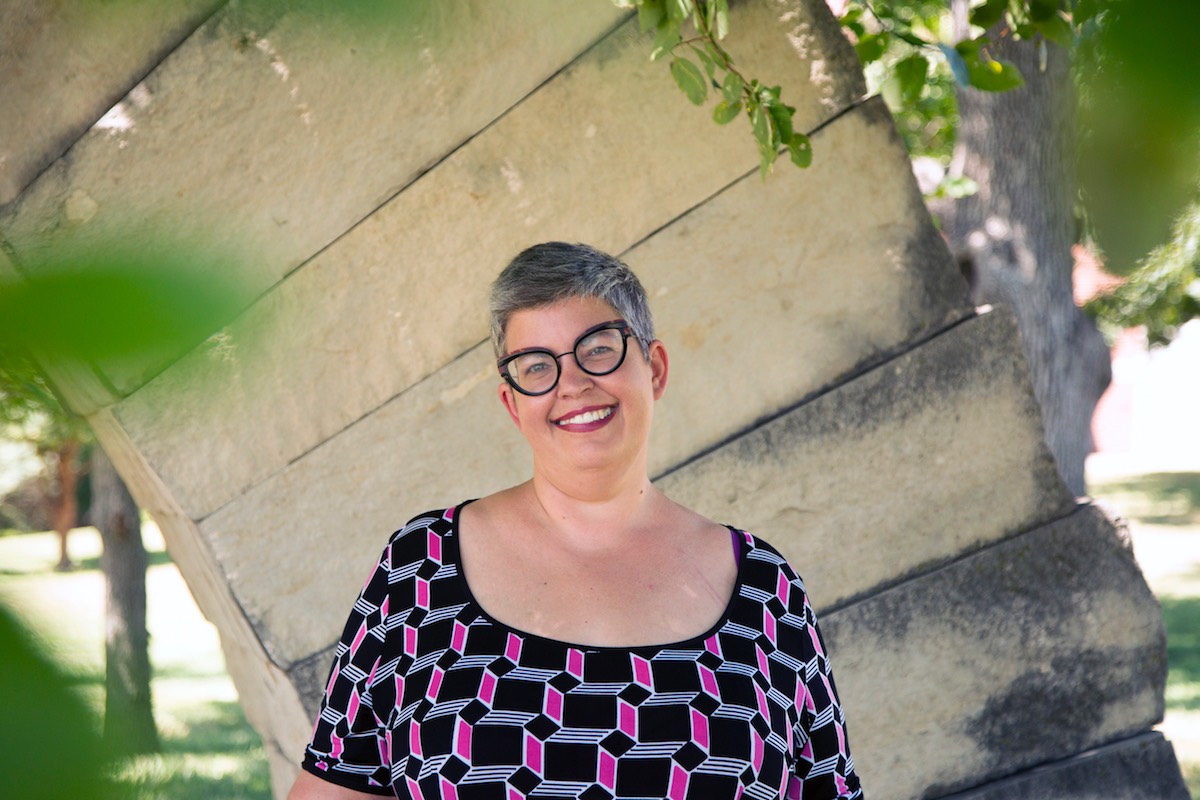The work of an art critic seems largely about judging what is good or bad and how a customer should weigh the price of time and admission.
There is, Emily Christensen thinks, more to the work of an art critic than “thumbs up or thumbs down.”
“Art is about ideas and exploring the ideas behind the art is so much more important than saying, ‘It’s good or it’s bad,’” Christensen said. ““That’s not how you get at the truth.”
In July, she spent five days on Zoom participating in the National Critics Institute, a program of the Eugene O’Neill Theater Center in Waterford, Connecticut.
Christensen, coordinator of external affairs for Wichita State University’s School of Art, Design and Creative Industries, wrote about food, plays, movies and dance. She, and 16 others in her group, listened to and received critiques from people such as such as Chicago Tribune theater critic Chris Jones, who directs the program, and Helen Shaw of New York Magazine. New York Times food critic Tejal Rao called Christensen’s writing “witty” in a critique.
"It was incredible to receive that kind of feedback from a writer whose work I admire so much,” Christensen said.
Christensen wrote a review of a “truly awful meal” in Kansas City (where she rented a place to sequester during the camp). She wrote an essay about how living with art during this period of social distancing helps her feel connected to other human beings. “The Line,” a documentary play about medical workers in New York during the pandemic, served as another subject for a review. The journalist and critic Mark Caro instructed the group to evaluate the movie “The Social Network” on its 10-year anniversary.
Shaw’s advice on tamping down the instinct to judge and focusing on the truth of the art resonated with Christensen, who writes about students and faculty art projects at Wichita State.
“I needed to be reminded that criticism is not about rendering judgement, that what you like or don’t like is almost the least important part,” she said. “There is a moral obligation to criticism, which I never really considered, that you are creating a record of creative work.”
That advice, she said, can immediately apply to her work at Wichita State and work writing about the arts community outside of her job. Wichita arts, she said, needs more record-keeping and she wants to do more of that kind of writing, inspired by what she learned.
“There are people making really great work here,” she said. “They are here for many different reasons, sometimes it’s family. They want to raise children in a house with a yard. They don’t want to be in a large, metropolitan area.”
Local artist Kate Van Steenhuyse considers Christensen a perfect fit for the role of explaining local art and widening the audience. She encouraged Christensen to apply for the program because of her communications background and her perspective outside the world of criticism.
“She has an amazing ability to translate really complex conceptual ideas and make them accessible for a very broad audience,” said Van Steenhuyse, co-founder and executive director of Harvester Arts. “It’s really about getting people to dive deeper into some critical thinking and be thoughtful. She’s good at translating these experiences that might seem sort of out there or fringe and connecting why they’re important to more people.”
Christensen, who graduated from Wichita State in 2005 with a major in English, communication and anthropology, doesn’t consider herself a critic. She wasn’t sure if her background qualified her for the program and a cohort that included writers from the New York Times and Dallas Morning News.
“I tell students all the time to apply for things that they are interested in, even if they don’t think they’re qualified,” she said. “I decided I should probably take my own advice.”


 Courtesy photo
Courtesy photo